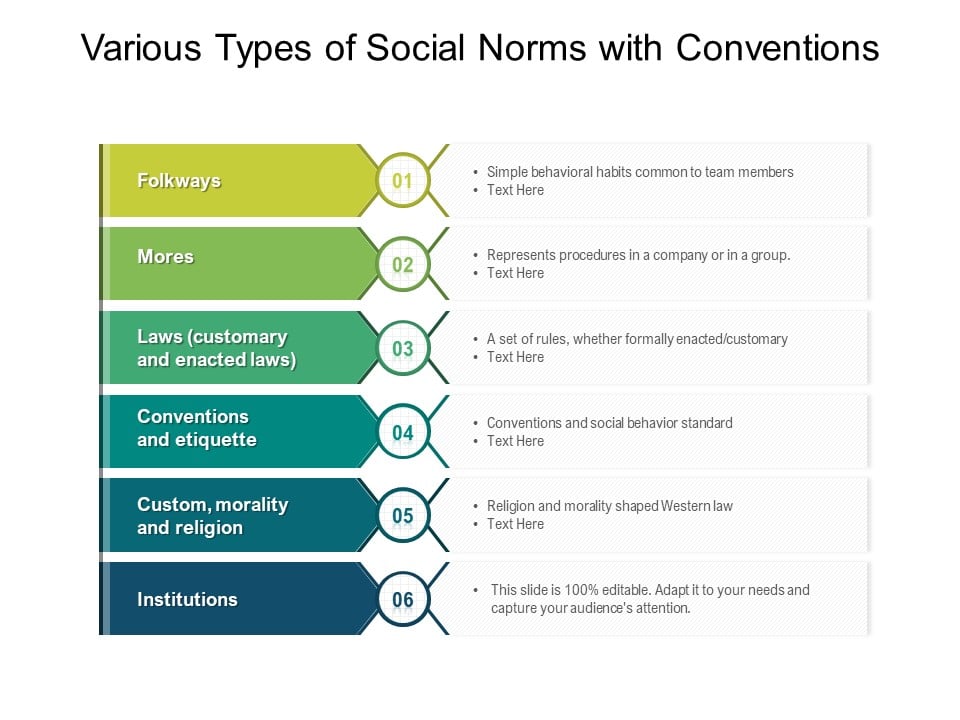
What do you mean by social norms?
Social norms refer to the shared beliefs that different group members follow in their daily behaviour and how others think about these actions. The social norms are generally unspoken and help predict the reactions of different individuals in the group. For instance, a widely followed social norm that is never discussed openly in society is that respecting the husband's authority is the essential characteristic of a good woman. This social norm forms the basis of husband-wife relations in society, and not meeting the criteria of this norm results in causing violence between husband and wife in the family.
Factors responsible for the formation of social norms
The world we live in today follows a patriarchal pattern in which the men of the family make all the decisions. The same situation is prevalent even outside the family in the community, as the decision-making power lies in the hands of the men. This creates a situation where it is assumed that women and girls have less power and value when compared to men in society. The increasing devolution of women by men has resulted in the formation of these social norms, which are still practised today in society.
Why is it essential to consider social norms as a problem for society?
Social norms result in creating gender inequality in the world. The increasing gender inequality results in violence against women in society and is one of the significant obstacles to the development of women in society. The social norms prevalent in society show that women are weak and are not given equal growth opportunities compared to men. Therefore, removing the social norms is essential as they can help improve women's lives by providing them equal growth opportunities as men in homes and offices. However, breaking social norms can be very awkward for people in society. Therefore, it can be said that understating the social norms of different societies highlights the cultural etiquette of the individual for showing respect to people around them.

Different examples of social norms are:-
- Greeting others with "thank you" for providing favours.
- Keeping the door open for others.
- Standing up and greeting people when they enter the room.
- Providing help to others carrying heavy objects.
- Speaking silently in public places.
- Waiting politely in line
- Respecting the personal space of others
- Practising proper disposal of waste
- Avoid eating smelled food in public.
- Keeping a smile when paying for goods and services.
- Congratulating others for their achievements and appearances
- Asking others regarding their interest or day
- Avoiding rumours and gossip about other people.
- Always ready to help others in need
- Greeting people whenever you meet
- Being "sorry" when you commit a mistake.
- Helping others during their needs
- Being an active part of group activities
- Showing respect to authority figures.
- Practising punctuality during critical events.
- Try not to interrupt others when they are speaking
- Taking an interest in the life and experiences of other people.
- Reducing the use of offensive language and gestures.
- Practising honesty and truthfulness with others in society.
- Showing kindness and respect to people of any social status, region, background, and religion.
- Helping others in need before helping yourself.
- Being an active participant in different types of charitable activities and works
- Trying to help others in any situation.
- Inviting people in their homes and offices.
- Smiling, looking people in the eyes, and nodding to make them believe you are actively listening to them.
- Following the legal rules and regulations of society.
- Respecting and protecting the beliefs and rights of other people in the society.
- Helping others to achieve their goals and objectives.
- Understanding and listening to the viewpoints of others around you.
- Practising etiquette and social manners while interacting with others in society
- Being patient when waiting in line
- Removing shoes when entering the house of others
- Putting collars around dogs' necks in public places such as parks.
- Proving seats to elderly and pregnant women in buses and trains.
Social Norms Made For Students:-
- The students need to follow punctuality when arriving at their classes
- Paying proper attention and making notes on important lectures
- Not disturbing others while they are working and maintaining silence in class.
- Raising the hand before asking a question in society.
- Completing the assignment on time
- Being an active participant in different class discussions.
- Showing respect to other classmates, teachers, and students in the school
- Respecting the rules and regulations of schools
- Avoiding the usage of inappropriate behaviour and language in school
- Taking permission from the teacher before going to the washroom in school
- Avoiding the usage of the bathroom after the beginning of the class
- Maintaining cleanliness in the workplace.
- Avoiding cheating during assignment
- Waiting politely before speaking
- Taking permission before using other supplies
- Include all the group members during group activity.
- Sitting silently when the teacher is in the class.


